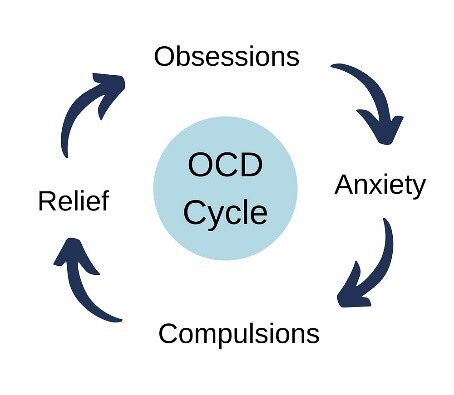How to support your child with OCD

Could your child have Obsessive Compulsive Disorder (OCD)?
Maybe you have noticed that your child has become very rigid with how things need to be or are doing certain behaviours repeatedly? It can be confusing and distressing wondering whether your child may be struggling with symptoms of OCD. In this article we explore what OCD is, and how to support your child if they are experiencing OCD symptoms.
What is OCD?
OCD or Obsessive Compulsive Disorder involves unwanted thoughts and fears (‘obsessions’) that leads to doing repetitive behaviours (‘compulsions’). Some common examples of repetitive behaviours include repeatedly checking that doors are locked, washing hands or counting actions, objects or letters. However, OCD behaviours can vary greatly between people. OCD is often very disruptive to people’s everyday lives. A person with OCD may repeat behaviours for hours on end, and these obsessive behaviours may impact their ability to study, work, and socialise.
So, what is the difference between an obsession and a compulsion?
Obsessions: persistent and distressing intrusive thoughts or images.
Compulsions: repetitive behaviours intended to neutralise or reduce the individual’s distress.
The OCD Cycle

Whilst people may get temporary relief from engaging in the compulsion (behaviour), this ultimately feeds the OCD cycle. To break the cycle, people need to resist doing the behaviour. This is typically very distressing, as the obsession (intrusive thought) can feel very real.
How can I tell if my child has OCD?
Some children may not be aware that they are struggling with OCD symptoms or may not want to disclose that they are.
- Here are some common signs to look out for:
- Increasing rituals at bedtime or around meal times
- Repeating rhymes or words
- Repeated doubts, such as weather the door is locked
- Intrusive thoughts about hurting someone or hurting themselves
- Long periods of time spent touching things, counting or thinking about numbers or sequences
- Preoccupation with symmetry or exactness
- Too much attention to detail
- Constant worrying about something bad happening
You may also notice the following changes in your child:
- Reported or observed stress or agitation
- Difficulty with sleep
- Depression and/or feelings of shame
- Slowness in performing tasks
- Needing to be kept busy or appearing ‘manic’
- Decline in academic performance
- Challenging behaviour
- Avoidance of social situations
- Family conflict over small things like how dinner is prepared
How can I support my child with their OCD?
- Encourage your child to resist the urge to engage in their OCD behaviours: Resisting the urge to engage in compulsions helps break the OCD cycle. Praise your child for every effort they make with resisting urges. It may be useful to introduce a ‘challenge for the week’ and a reward for successfully completing the challenge. Start small, with symptoms that bother your child less than others.
- Teach your child anxiety management techniques: Educating your child on anxiety management techniques will likely help them to better manage the anxiety they experience as part of the intrusive thoughts. For example, they could try deep breathing or progressive muscle relaxation.
- Try not to accommodate: OCD feeds on attention and accommodation. Often families find that they accommodate/participate in their child’s compulsions. For example, your child may ask you to open the door for them so they can avoid touching it. Ultimately, you will strengthen their OCD every time you comply. Whilst it can be difficult to see your child in distress, not accommodating for your child will help break the OCD cycle.
- Book appointments with a psychologist: A psychologist will be able to support you and your child in their journey with tackling OCD.
If your child is struggling with OCD please
contact the friendly team at Progressive Psychology on 0477 798 932 to make an
appointment with one of our highly skilled psychologists today.
